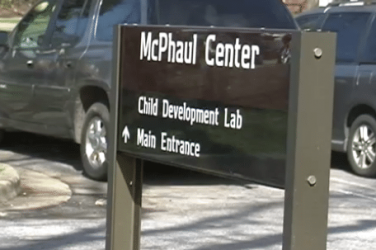According to Mayor Kelly Girtz, the Athens-Clarke County Mayor and Commission plan to take steps to end cash bail at the municipal court level this spring.
The Municipal Court handles county ordinance violations, state misdemeanor traffic violations, state misdemeanor crimes of theft by shoplifting, possession of less than an ounce of marijuana, and underage possession of alcohol.
Why It’s Newsworthy: Cash bail is a common practice across the country that is used to create collateral to ensure that defendants return for court appearances. However, the practice has been scrutinized and accused of creating a system that incarcerates people simply for being poor, and adds to mass incarceration as a whole.
Mayor Girtz contends that the cash bail system does not work and needs to be reassessed.
According to Girtz, simply communicating better with defendants to let them know when their court dates are scheduled is a productive way to make sure they return for court without the use of cash bail.
“The same way that our pharmacists let us know when we’ve got a prescription waiting for us via text message and email, you can use the same kind of system to let people know they’ve got a court date on May 1,” Girtz said.
AADM Solutions
The Athens Anti-Discrimination Movement suggests that the Mayor and Commission adopt an ordinance drafted by the ACLU called “The Freedom Act of Athens-Clarke County, Georgia.” The ordinance “wishes to eliminate the requirement of the payment of a cash bond to secure pretrial release” from the Athens-Clarke County jail.
The ordinance would require that, for violations of county-level ordinances, officers issue citations rather than arrest and detain offenders. The ordinance excludes instances of domestic abuse and other violent acts from this process.
President of AADM, Mokah Johnson, says that financial bail is not the best way to decide who is detained pretrial.
The D.C. Model
Johnson says that Washington D.C. has a particularly strong system for reducing pretrial detention.
Washington D.C. began moving towards bail reform in 1963 with the creation of the D.C. Bail project—now called the Pretrial Services Agency (PSA).
Judges determine whether or not to release defendants based on risk-assessments that help to quantify a defendant’s likelihood of running away or committing a crime if released during the pretrial period. Very rarely does a judge post a financial bail bond.
According to a PSA case study, over 90 percent of all people arrested in D.C. are released without a money bond, 90 percent of those released make it to all court appearances, and 91 percent refrain from re-arrest until their trial.
Erin Stacer, a member AADM, says that risk-assessments can unfairly target racial minorities if implemented incorrectly. According to the Harvard Law Review, empirical tools like risk-assessment help to remove some bias from judges making bail decisions, but cannot fully eliminate inherent biases that exist systematically in the criminal justice system.
However, the Harvard Law Review contends that if risk-assessments are “paired with adequate safeguards, reductions in incarceration and progress toward equal treatment may be possible.”
Girtz says that the biggest opposition to the movement away from cash bail is the bail-bond industry, but he’s not worried about that.
“That’s not a concern of mine,” Girtz said. “Community health. Community well-being. That’s a concern of mine.”
Raphaëla Alemán is a third-year journalism and cognitive science major at the University of Georgia.







